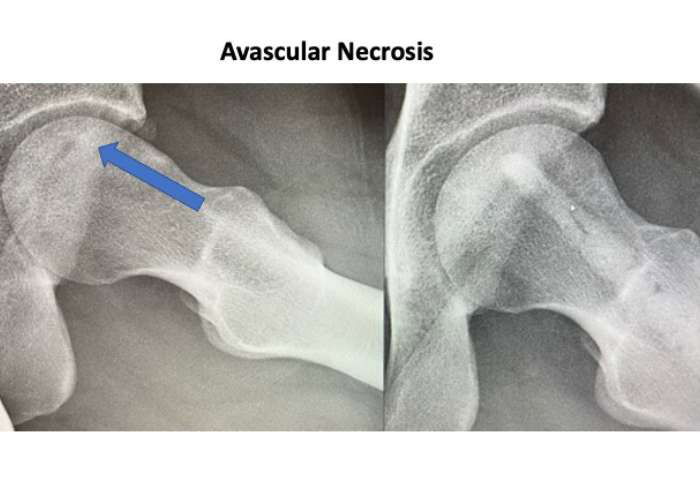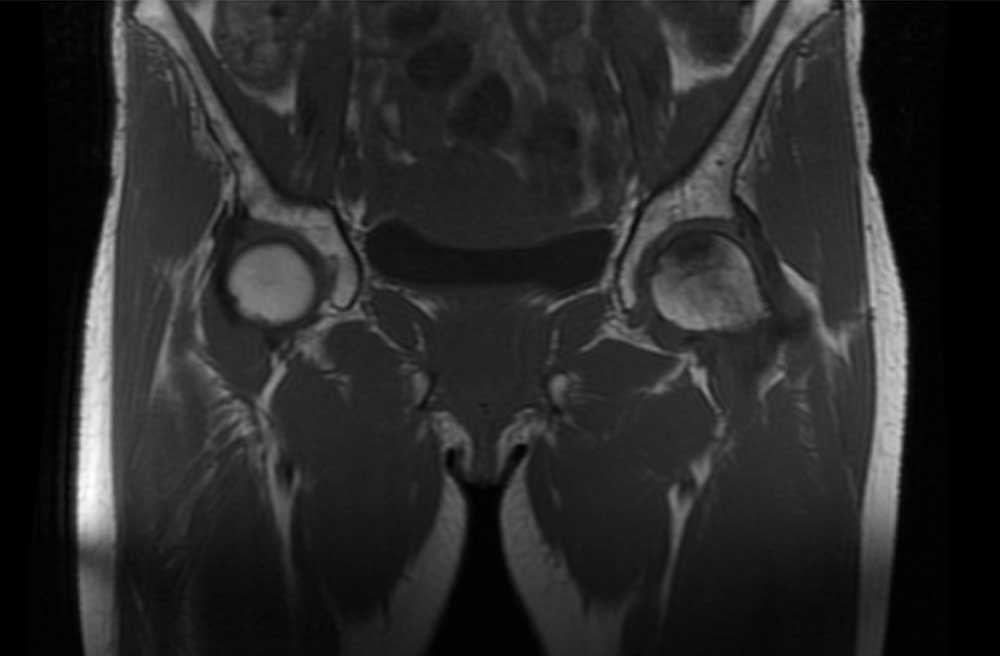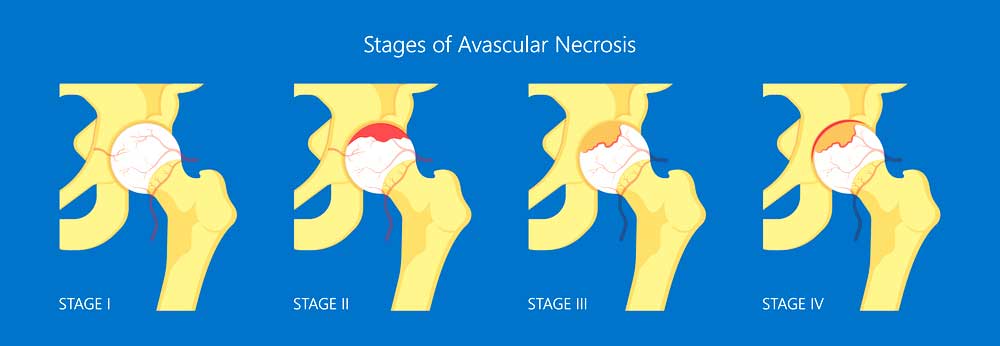Hip Avascular Necrosis Specialist

Have you had a hip dislocation, femoral head fracture or are you experiencing pain in the hip joint? Have you developed a limp when walking or have pain when weight-bearing? If so, you may have avascular necrosis, a hip condition which requires early treatment. Doctor Benedict Nwachukwu provides diagnosis as well as surgical and nonsurgical treatment options for patients in Manhattan, New York City, NY who are experiencing complications from AVN of the hip. Contact Dr. Nwachukwu’s team today!
What is AVN or avascular necrosis in the hip?
Hip avascular necrosis is the name for a condition that causes the death of bone tissue due to a loss of blood supply. Other common terms used to describe avascular necrosis may be AVN, osteonecrosis, ischemic bone necrosis or aseptic necrosis. If AVN is left untreated, the bone can collapse. Dr. Benedict Nwachukwu, serving patients in Manhattan, New York City and the surrounding New York boroughs has extensive experience diagnosing and treating patients with avascular necrosis of the hip.
What causes avascular necrosis (AVN) of the femoral head?
AVN most often affects the hip and specifically the femoral head (ball at the top of the femur, or long bone of the leg). Avascular necrosis of the femoral head can be either traumatic or non-traumatic in nature.
- Trauma that causes AVN:
- Hip dislocation
- Proximal femur fracture
- Non-trauma causes of AVN:
- Steroids (glucocorticoids such as prednisone)
- Excessive alcohol consumption
- Medications that cause hypercoagulable states
- Chemotherapy

What are the risk factors for developing femoral head necrosis?
Risk factors for necrosis of the femoral head may include:
- Cigarette smoking
- Pregnancy
- Radiation
- Chemotherapy treatments
- Bone marrow or blood diseases such as:
- Leukemia
- Sickle cell disease
- Gaucher’s disease
- Thalassemia
- Underwater diving disease (commonly called “The Bends”)
- Diabetes Mellitus
- Vasculitis
- Inflammatory bowel disease
What are the symptoms of avascular necrosis in the hip?
It’s not unusual for patients with avascular necrosis to have no symptoms or pain in the early stages However, as the disease progresses, symptoms become painful. Pain is often felt only when putting pressure on the hip or affected bone. Eventually the pain becomes constant, limiting the ability to use the joint. Other symptoms include:
- A limp that develops when walking
- Groin pain
- Pain in the hip with weight-bearing
- Pain in the hip with rotation
What are the stages of AVN?
Osteonecrosis or avascular necrosis develops in stages. It may take several months or even over a year for the disease to progress; therefore, it is important to diagnose AVN early. Early treatment is directly linked to better outcomes. The stages of AVN are:
- Stage 1: Primarily hip pain. X-rays may show the beginning of necrosis.
- Stage 2: Bone death can be seen on x-ray but the femoral ball is intact.
- Stage 3: Shows bone death with collapse on x-ray, also shows signs of cartilage damage and osteoarthritis.
- Stage 4: Shows collapse of the femoral head with severe osteoarthritis.
How is avascular necrosis diagnosed?
Dr. Nwachukwu will obtain a complete and thorough patient history and will conduct several diagnostic tests that may include an MRI, X-ray, and/or a CT-Scan. Dr. Nwachukwu most often recommends an MRI as the gold standard for detecting pre-collapse lesions. An MRI also helps him determine if the patient is experiencing a femoral head bruise or osteopenia.

What is hip avascular necrosis treatment?
There are several good options for treating AVN, depending on the patient’s health, age, level of activity, condition of the bone and pre-existing health conditions. Dr. Nwachukwu will recommend one or more of the following treatments:
Non-surgical treatment:
Medications such as statins and bisphosphates may help to slow down and even repair the progression of AVN. Dr. Nwachukwu has also had success with hyperbaric oxygen therapy (HBO) for treating AVN which is thought to reverse ischemia. HBO can also help reduce the body’s inflammatory response which will reduce pain in the early stages.
Surgical Treatments:
Most often Dr. Nwachukwu successfully treats AVN with one or more of these surgical options:
- Core Decompression: Most commonly recommended by Dr. Nwachukwu as the gold standard of treatment, the procedure reduces the pressure on the femoral head and restores the blood flow.
- Bone Graft: Uses pieces of donor bone tissue to replace the damaged or dead bone tissue.
- Total Hip Replacement: In advanced cases of AVN, a complete hip replacement or hip arthroplasty is the best option for successful AVN treatment.
What is the recovery time after avascular necrosis (AVN) treatment?
The recovery time after AVN treatment varies greatly and depends primarily on the procedure. Dr. Nwachukwu lets his patients know what to expect and will provide a full post-surgical protocol for AVN treatment.
For more information and treatment options for AVN (avascular necrosis) please contact the office of Benedict Nwachukwu, MD, orthopedic hip specialist serving Manhattan, New York City, and surrounding New York boroughs.






